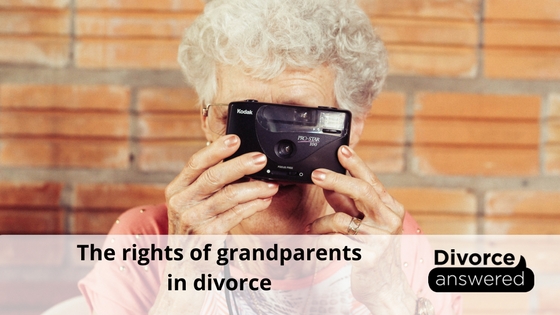
Today, more than any previous generation, grandparents are playing a more active role in the lives of their grandchildren. Rachael Scharrer, founder of online resource DivorceAnswered.com.au dedicates this post to her mother, the grandmother of children of divorce, Nanna. Nanna is concerned for other grandparents who aren’t able to facilitate a loving relationship with their grandchildren of divorce. Rachael shares her story and suggestion to other grandparents:
While my children regularly see and talk with their maternal grandparents, Nanna sympathises with so many grandparents who do not know their rights when there is divorce in the family. In some situations, grandparents become alienated.
My automatic response to Nanna assumed she understood the intricacies of family law (which she doesn’t), despite emotionally supporting me throughout a protracted divorce. Nanna can’t imagine not having time with the grandchildren regardless of which side of the divorce she sat on. In the more fractious divorces, relations with the spend-time-with family are limited to not existent. For some, the time with the spends-time-with parent is so limited that it isn’t possible to have quality time and see the extended family.
However, court orders surrounding divorce and parenting only apply to the named persons. Only in extenuating circumstances are the grandparents named in the order. As such, it is up to each parent to facilitate a loving and considered relationship between the child and all family members.
Regardless of whether you are a grandparent, aunt or uncle, you need to create the relationship you want with the children of the divorce. You could try to:
Grandparents can become the primary carer of their grandchildren by:
Grandparents are allowed to agitate at court if they feel overlooked, intentionally alienated or previously played a significant role in the grandchildren’s lives. Documenting your interactions, contact and time with the grandchildren is a great place to start. Should you have ongoing concerns, contact your family lawyer for individualised advice.